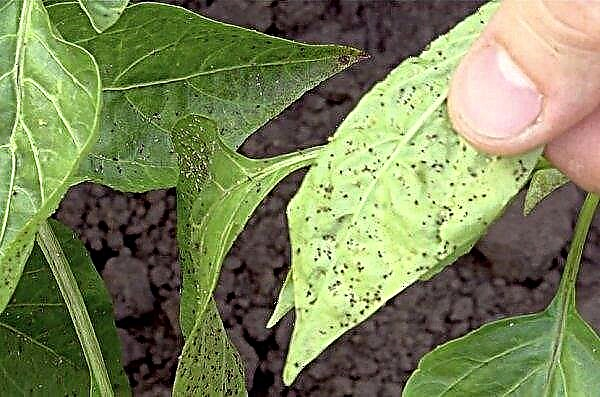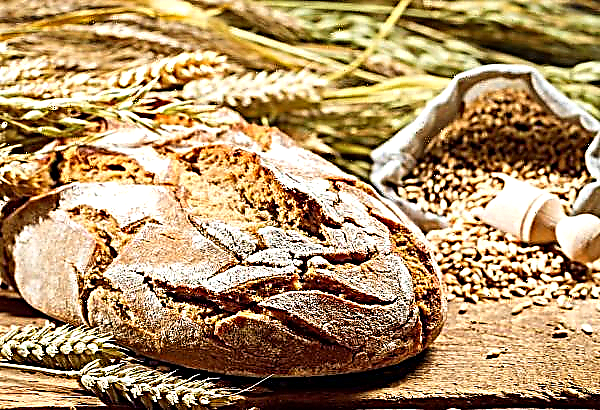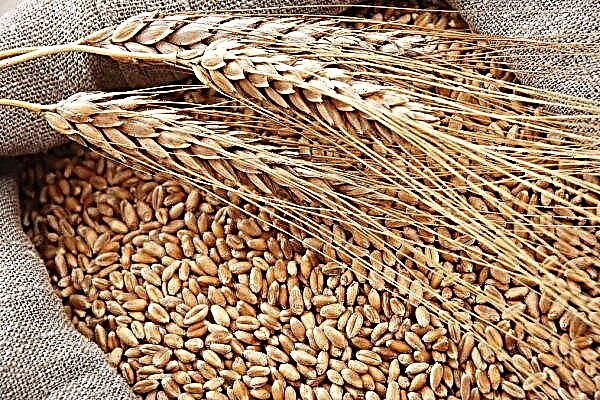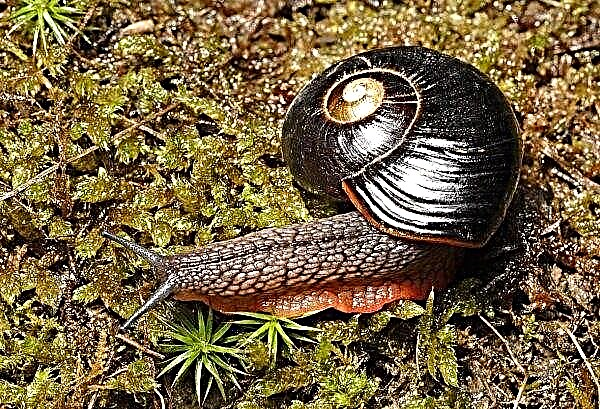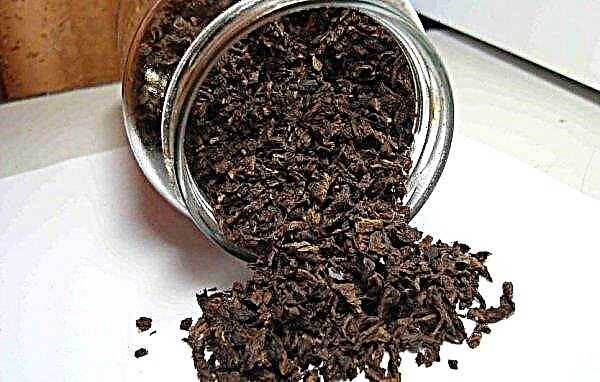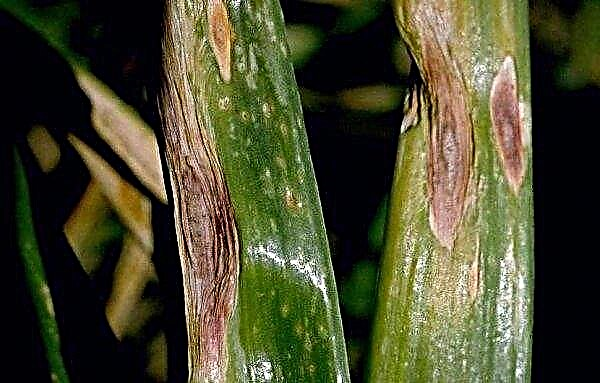Exotic cashew nuts are increasingly bought by people who care about a healthy diet. Useful qualities of the product justify its high price, established in the food market. Read more about nuts and how much they can eat per day, read on in the article.
Where does cashew nut grow and what does it look like
Homeland nutty delicacy is Brazil. Today this plant is grown in more than 30 countries of the world whose climatic conditions are optimal for the growth and development of walnuts. Large fruits consisting of 2 parts grow on a tree.
One of them, called an apple, has an oblong shape, is painted in yellow, orange or red and has a fleshy, sweet and sour flesh. They make juices, jams, compotes and spirits from it.
 But much more valuable is the second part of the fruit, which is attached to the apple in the form of a massive curved outgrowth of light brown color. This is a hard-shelled nut.
But much more valuable is the second part of the fruit, which is attached to the apple in the form of a massive curved outgrowth of light brown color. This is a hard-shelled nut.
Unrefined nuts are never sold. This is due to the presence between the inner surface of the shell and the outer part of the core of a toxic substance called cardol. Due to its presence, each fruit has to be cut by hand, working with gloves, since the cardol can cause a chemical burn on the skin.
It is manual labor and high transportation costs that cause the high market value of this nut product. The purified product is subjected to heat treatment, as a result of which the toxic substance evaporates and the nut kernels become harmless.
Did you know? Delicious nut is a relative of not only noble pistachios and mangoes, but also poison ivy.
How much can you eat a day of cashews
Compared to other nuts, cashews have a reduced percentage of fat, high calorie content and a large number of nutrients. Thanks to this, after eating even a small amount of cashews, a person feels full.
 It is not recommended to be too fond of eating it: according to the recommendations of nutritionists, the daily intake of this product should not exceed 30 g (about 12 pieces). Teenagers should limit their daily intake to 8 nuts.
It is not recommended to be too fond of eating it: according to the recommendations of nutritionists, the daily intake of this product should not exceed 30 g (about 12 pieces). Teenagers should limit their daily intake to 8 nuts.
The chemical composition and calorie content of cashew nuts
The high energy value of the product is determined by the presence of 600 kcal nuts in 100 g.
The same 100 g contains:
- proteins - 18.6 g;
- fats - 48.6 g;
- carbohydrates - 22.4 g.
 Walnut contains unsaturated fatty acids Omega-3, Omega-6 and Omega-9, which are necessary for the body antioxidants that slow down aging.
Walnut contains unsaturated fatty acids Omega-3, Omega-6 and Omega-9, which are necessary for the body antioxidants that slow down aging.
| The vitamin component is represented by: | Minerals are present in the product in the form of: |
| thiamine (B1) | phosphorus |
| riboflavin (B2) | copper |
| nicotinic acid (B3) | potassium |
| pantothenic acid (B5) | calcium |
| pyridoxine (B6) | zinc |
| folic acid (B9) | sodium |
| ascorbic acid (C) | gland |
| tocopherol (E) | magnesium |
| niacin (PP) |
Important! No need to store cashew nuts at room temperature. Under the influence of heat, the nutrients necessary for the body begin to break down, and the product takes on a bitter aftertaste.
Health benefits of cashew nuts
The diversity and high concentration of nutrients in these products determine their benefits for human health.
- Scientists have reliably proven the positive effect of the product on:
- activation of brain activity, improvement of memory and concentration of attention;
- a decrease in the content of bad cholesterol in the blood, which contributes to the prevention and treatment of atherosclerosis;
- strengthening the walls of blood vessels;
- stimulation of blood circulation;
- increase in hemoglobin in the blood;
- strengthening the immune system;
- optimization of blood sugar;
- strengthening bone tissue and tooth enamel;
- treatment of respiratory diseases and flu prevention;
- prevention of high blood pressure;
- successful treatment of skin diseases and improvement of the skin condition;
- inhibition of aging processes in the body;
- optimization of the nervous system;
- sleep improvement;
- elimination of depression;
- prevention of osteochondrosis;
- overcoming intestinal disorders;
- successful course of menstrual cycles;
- stimulation of the production of female hormones and lactational functions;
- favorable development of the fetus during pregnancy;
- improving the appearance of hair and skin;
- elimination of constipation;
- quick recovery of forces after heavy physical exertion;
- potency enhancement;
- stimulating the production of quality sperm.
 Among the variety of nuts that exist on the planet, cashew is the only one that ripens outside the fruit, and not inside it.
Among the variety of nuts that exist on the planet, cashew is the only one that ripens outside the fruit, and not inside it.
Contraindications cashew nuts
Serious health problems can only be provoked if you eat too many nuts during the day. Among other cashew nuts, it is considered the least active allergen, so if you eat it moderately, then this product will not bring harm.
An exception is people suffering from individual intolerance to nuts. They need to refrain not only from the use of this product as food or in the form of syrups and tinctures, but also from the use of cosmetics and care products with the addition of cashew extract.
Important! Raw nuts are healthier than fried nuts, since the latter have fewer vitamins and more calories.
The high cost of nuts is offset by the undoubted benefits of their use and the gastronomic qualities of the product. A person should not exceed the recommended daily intake of cashews in order to note an improvement in health and appearance.

